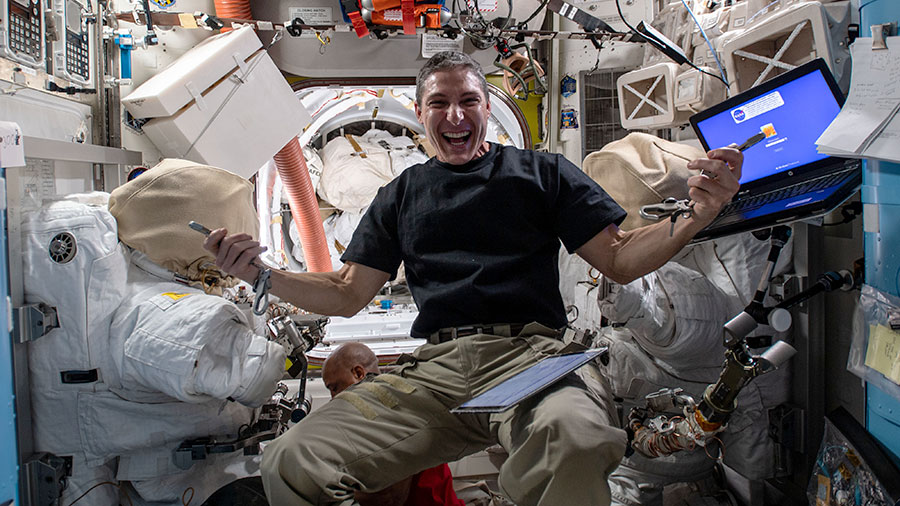Station Boosts Orbit During Research and Spacewalk Preps

DNA, time perception and combustion investigations filled the research schedule aboard the International Space Station today. The Expedition 64 crew is also training for a pair of spacewalks set to start next week.
Researchers are studying how microgravity affects a human’s DNA and even time perception as astronauts spend more time living in space. Radiation and weightlessness can impact DNA while the lack of an up-down orientation and a day-night cycle may influence spatial and time perception.
Biologist and NASA Flight Engineer Kate Rubins, the first person to sequence DNA in space in 2016, was once again preparing DNA samples for sequencing to learn how to monitor crew health and identify organisms in space. She also replaced fuel bottles inside the Combustion Integrated Rack to maintain safe fuel and flame studies aboard the orbiting lab.
Flight Engineers Michael Hopkins of NASA and Soichi Noguchi of JAXA took turns Thursday morning helping researchers understand the subjective changes in time perception they may experience in space. The duo wore a virtual reality headset, used a trackball and performed tests to measure their timed responses.
All three astronauts then joined NASA Flight Engineer Victor Glover in the afternoon to practice robotics maneuvers they will use during a pair of spacewalks set for Jan. 27 and Feb. 1. Hopkins and Glover will be the spacewalkers for both excursions. The duo will set up European science and communications hardware on the first spacewalk and configure battery gear and high definition cameras on the second.
The orbiting lab slightly boosted its orbit this morning after the Progress 75 cargo craft fired its engines for nearly seven minutes. The new altitude readies the station to receive a new cargo craft, the Progress 77, when it docks on Feb. 17 to the Rassvet module.
Mark Garcia
Powered by WPeMatico



